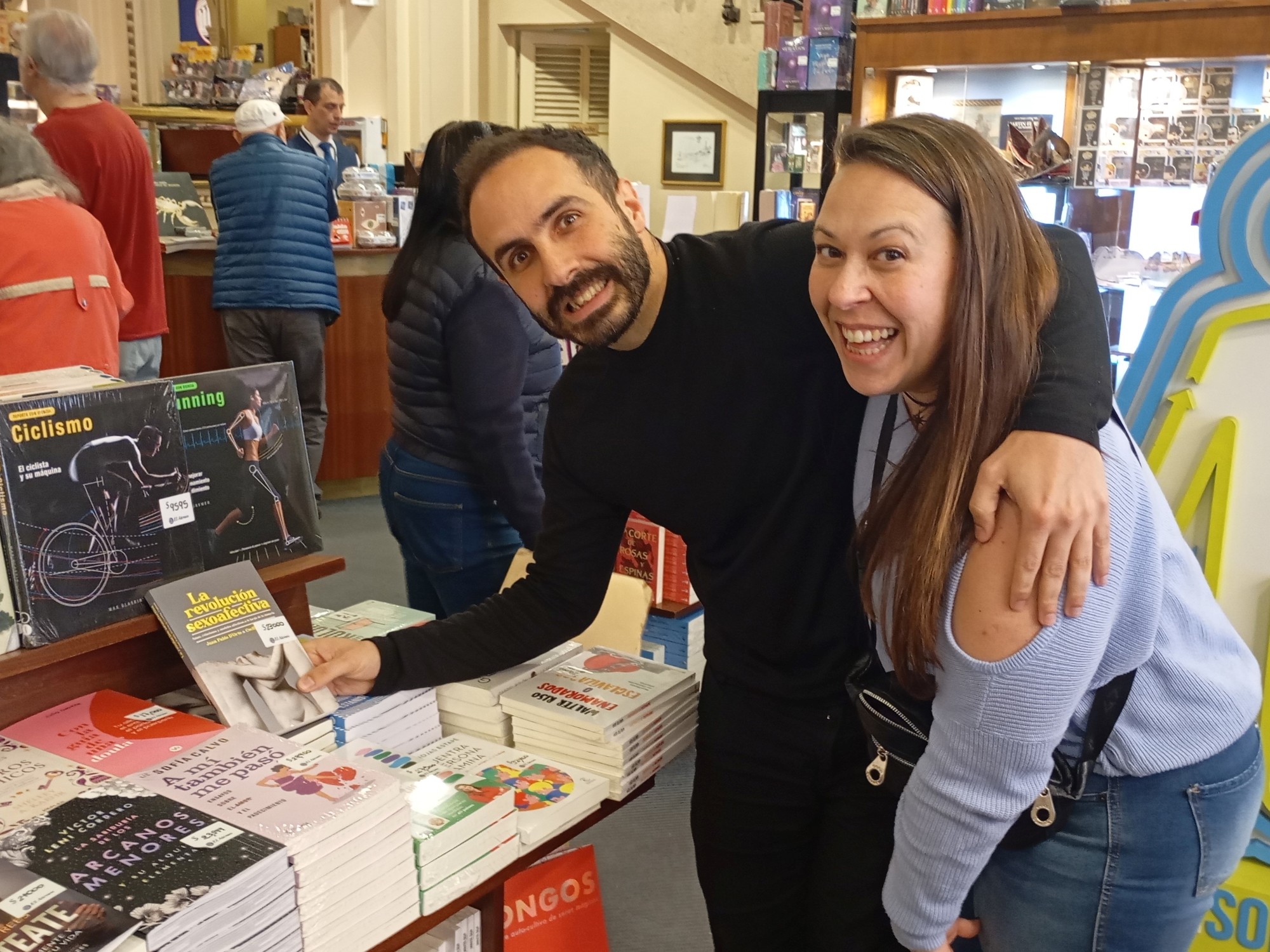



How and why does a couple choose polyamory? The reasons can be diverse; although in this case, they may surprise: “We opened the relationship because we believed that there was a possibility of transforming the world,” said the protagonists. Juan Pablo D’Orto and Cecilia Figlioli are part of a quatreja which also includes Florencia and Sebastián. The four of them live together and also raise a son.
Within the “polyamory world”, Cecilia and Juan Pablo are already widely known. For years they have sought to rethink love and relationships through a historical, social and political perspective, as well as clarify the doubts of those who intend to dive into relationships where exclusivity is not a requirement.
The creators of “the polyclinic”, a space of accompaniment and listening for members (or aspirants) of non-monogamous relationships, they have just published their first book, The sexual-affective revolution (Uranus), where fidelity, marriage, romantic love, patriarchy, sexuality and the various emotional models are just some of the topics included.
The cloistered monk who discovered polyamory
Twenty years ago, imagining Cecilia and Juan Pablo as part of a polyamorous family was – to say the least – strange. He spent more than five years as a cloistered monk and, after abandoning religious life, she began a relationship within the parameters of traditional monogamy with Figlioli, until then a friend and former high school classmate.
They needed time and answered many questions for themselves before opening the relationship. But when they understood not only their feelings, but the weight exerted by everything that seems natural and that is actually cultural, there was no turning back.
“All the good things that the history of sexual affection has have been constructionstools created by people who at one point said ‘we are going to build a new way of relating, of telling each other that we love each other, of forming our family, of raising our children, of living together, of sharing our life’. All those constructions always give us better possibilities than we had before,” D’Orto said.
In that framework, he explained, it goes through a period of transition in which “many times things are not easy and there is pain.” That is why, according to him, “it is to be expected that there will be resistance to changes” and the different ways of connecting generate so much controversy.
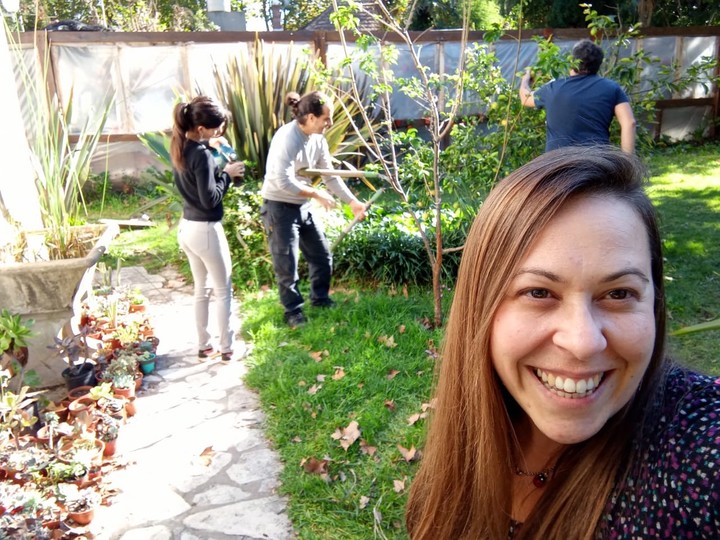 Juan Pablo D’Orto and Cecilia Figlioli, along with the rest of their polyamorous family: Florencia and Sebastián. Photo: courtesy.
Juan Pablo D’Orto and Cecilia Figlioli, along with the rest of their polyamorous family: Florencia and Sebastián. Photo: courtesy.However, he highlighted, neither open relationships nor polyamory should be warned as a threatsince they are “new ideas, new processes and new ways of organizing that They don’t come to destroy the family“, not to the couple, much less to love, but they come to give them new possibilities.”
Polyamory: resistance due to conviction or loss of privileges?
Those responsible for “the polyclinic” constantly dispel doubts and prejudices about polyamory and open relationships. One of the situations they face most often is rejection to other family configurations outside the traditional ones.
Juan Pablo and Cecilia explained that there are resistances that have to do with ignorance and others that are directly linked to the fear of loss of privileges. “In all affective models there is a part of people that resists because they do not understand and another part of society that resists because they are partying and say ‘I don’t want my partner to have the same thing that I have’,” said D’ Ortho.
As an example, he mentioned among those “privileged” to men who, accustomed to infidelity, say: “I don’t want my wife – who is the one who cleans my pants, the one who makes the kids’ food, who takes them to kindergarten while I am with another woman – – wants to have an open relationship.” “That speaks of people who have privileges that they don’t want to give up,” he said.
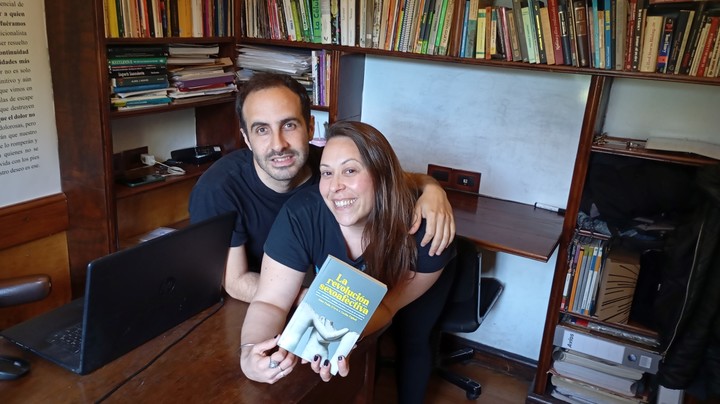 Juan Pablo D’Orto and Cecilia Figlioli, authors of The Sexual Affective Revolution (Uranus). Photo: courtesy.
Juan Pablo D’Orto and Cecilia Figlioli, authors of The Sexual Affective Revolution (Uranus). Photo: courtesy.In this context, he highlighted that “the male infidelity is organized and that, little by little, the female infidelity “It also begins to organize.” Cecilia, for her part, highlighted that “infidelity is part of monogamy”.
Personal spaces, agreements and consensus
When talking about non-monogamous relationships, it is common to mention the agreements that are previously established, as well as their transitions and mutations. Figlioli is surprised how this only seems to include enabling sexual encounters with other people.
“There is great confusion. It happens to us a lot in the polyclinic or in the workshops that we do that, when they talk about couple agreements, it seems that the only thing that needs to be agreed upon is not to have sexual and emotional exclusivity“Cecilia pointed out.
However, an elementary factor to agree on for a healthy and pleasant bond is the defense of personal spaces. And this, the author clarified, is an increasingly greater demand in both monogamous and open relationships. For her, “a satisfactory relationship has to do with the possibility of having these individual or autonomous spaces for the couple.”
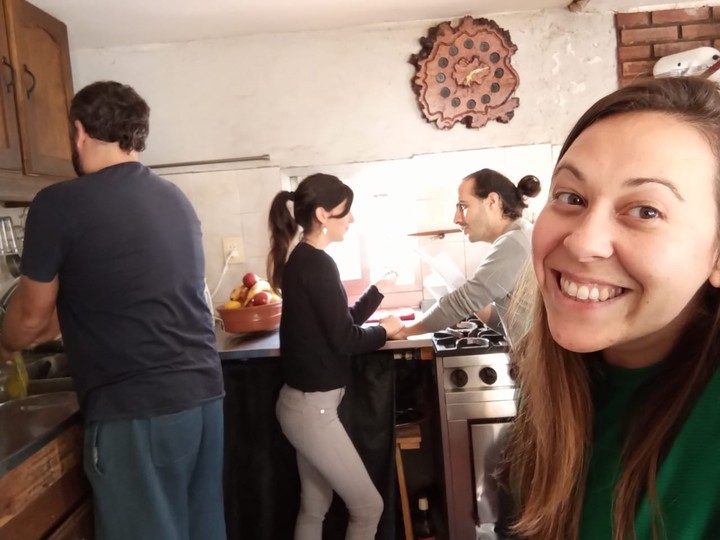 Cecilia, Juan Pablo, Florencia and Sebastián, at home. Photo: courtesy.
Cecilia, Juan Pablo, Florencia and Sebastián, at home. Photo: courtesy.Regarding the traditional ones, he maintained: “There is great discomfort with monogamy due to this lack of autonomous spaces. It is not necessary to have an open relationship to have a satisfactory relationship, what is necessary is not to have a guard at your side. Sometimes people seem to live with the police: ‘where are you going?’, ‘where are you coming from?’, ‘who were you with?’, ‘give me the location.’”
Returning to the very popular agreements, Cecilia emphasized that these should be for a specific moment, be flexible and based on consensus and consent: “Sometimes one thinks that they are agreements and in reality they are prohibitions or enforcement control through open relationship agreements. Consensus has to be active and participatory, there is no consensus where the same person always proposes and the other says yes or no, that is not consensus.”
What is the house of polyamory like?
“Understanding the context or the world we inhabit is essential,” Figlioli anticipated. In that sense, he urged us to understand where monogamy comes from and analyze it from a historical, social and political perspective.
“Nobody believes this, but we opened the relationship because we believed that there was a possibility of transforming the world.”, he emphasized. To do this, they had to investigate and also test themselves with a “relational proposal based on non-possession, consensus, consent and communication.”
Was it easy? Not so much, they admit. At first, Cecilia admitted, she felt very jealous, while Juan Pablo, as she said with a laugh, “I was in Narnia”. “It’s difficult if you don’t change your ideas, because this has to do with how you see the world. It seems that things as a couple are ‘things of the heart’ and in reality the monogamy that we know today has to do with a specific political, economic and social period. He romantic lovewhich is basically the set of ideas that supports monogamy, did not always exist.”
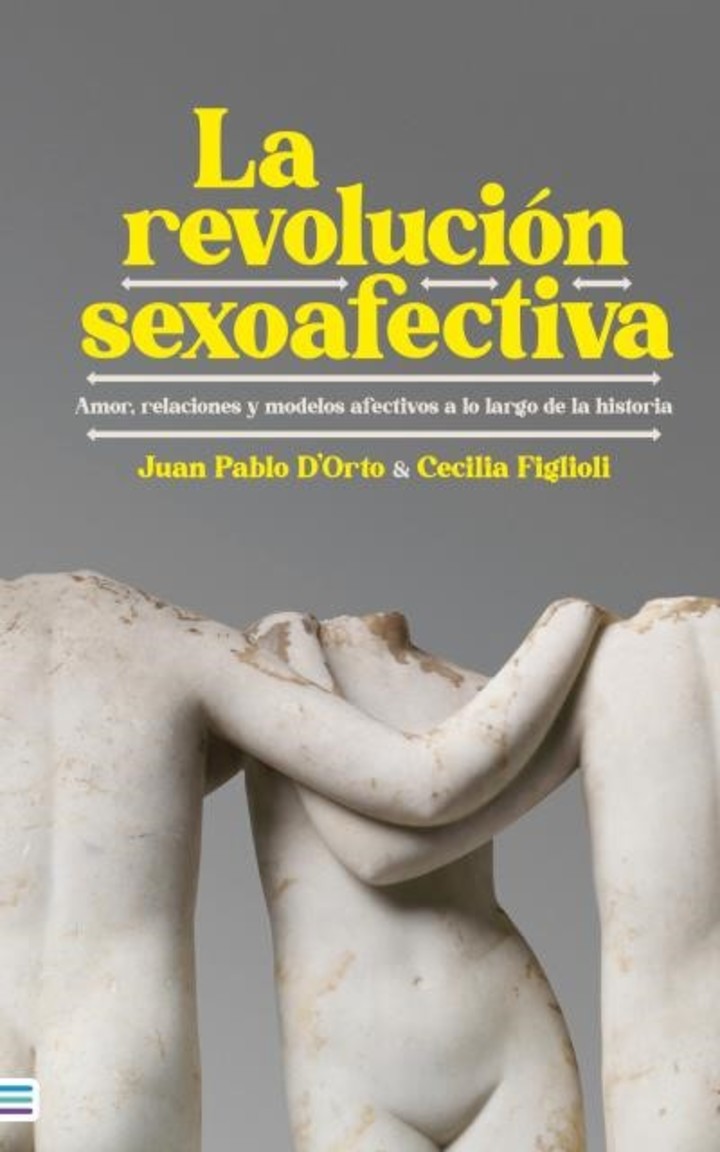 The sexual-affective revolution (Uranus).
The sexual-affective revolution (Uranus).Today this polyamorous home is made up of Cecilia, Juan Pablo, Sebastián, Florencia and the 12 year old son that they raise between the four of them. Since the first two began their relationship, almost two decades ago, “many people have passed through in the middle,” they said. Currently everyone is part of an open relationship in which each one also links with other people.
How do you explain to a child what a polyamorous family is? “He knew everything from day zero. We are very of the ESIwhat he asks is answered, on demand,” the authors concluded.
